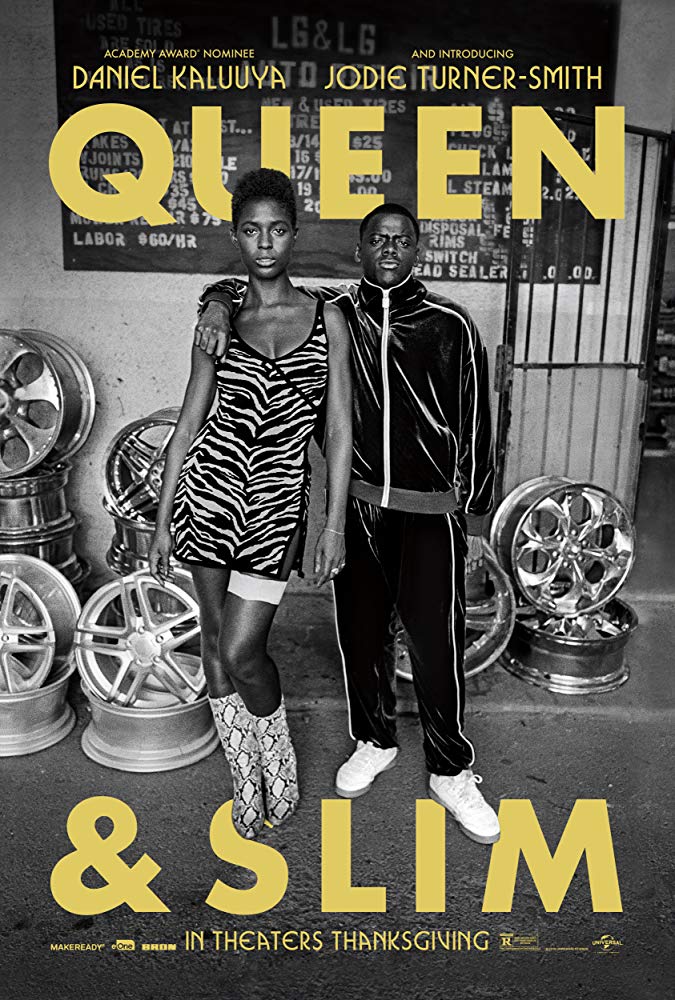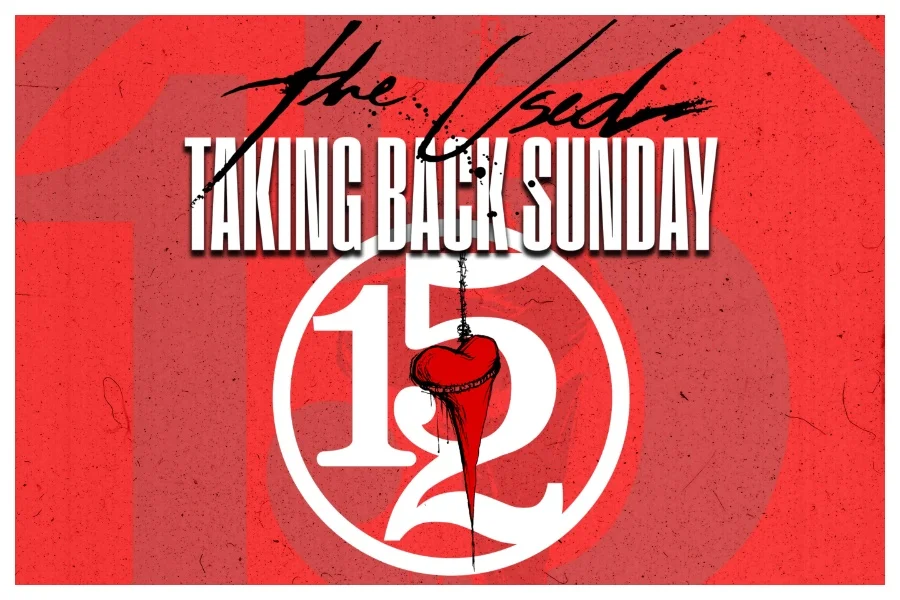Basically: Legends who are born in blood still have beating hearts…
Queen & Slim is a flower with thorns—petals that open to reveal more and more depth and healing leaves with poison roots. If that sounds a little like poetry then we’re off to the right start. On a first glance Q&S seems to follow Bonnie and Clyde (1967), but it has much more to do with later films. Stories that took the the B&C paradigm and flipped it. Specifically, Thelma and Louise (1991) and, surprisingly, The Legend of Billie Jean (1985). Those films aren’t really about crime but instead focus on the way the power structure and the patriarchy conspire to paint good people as “criminals”—usually as retribution for the audacity of standing up for themselves.
Thelma and Louise focuses on poor women who rage against the misogyny of the patriarchy. While The Legend of Billie Jean rallies teenagers in similar circumstances. Queen & Slim has that kind of focus and voice but it sings about Black people, who battle corruption in the power structure and the patriarchy but also the racism and brutality intrinsic to both.
Queen & Slim is also a love story.
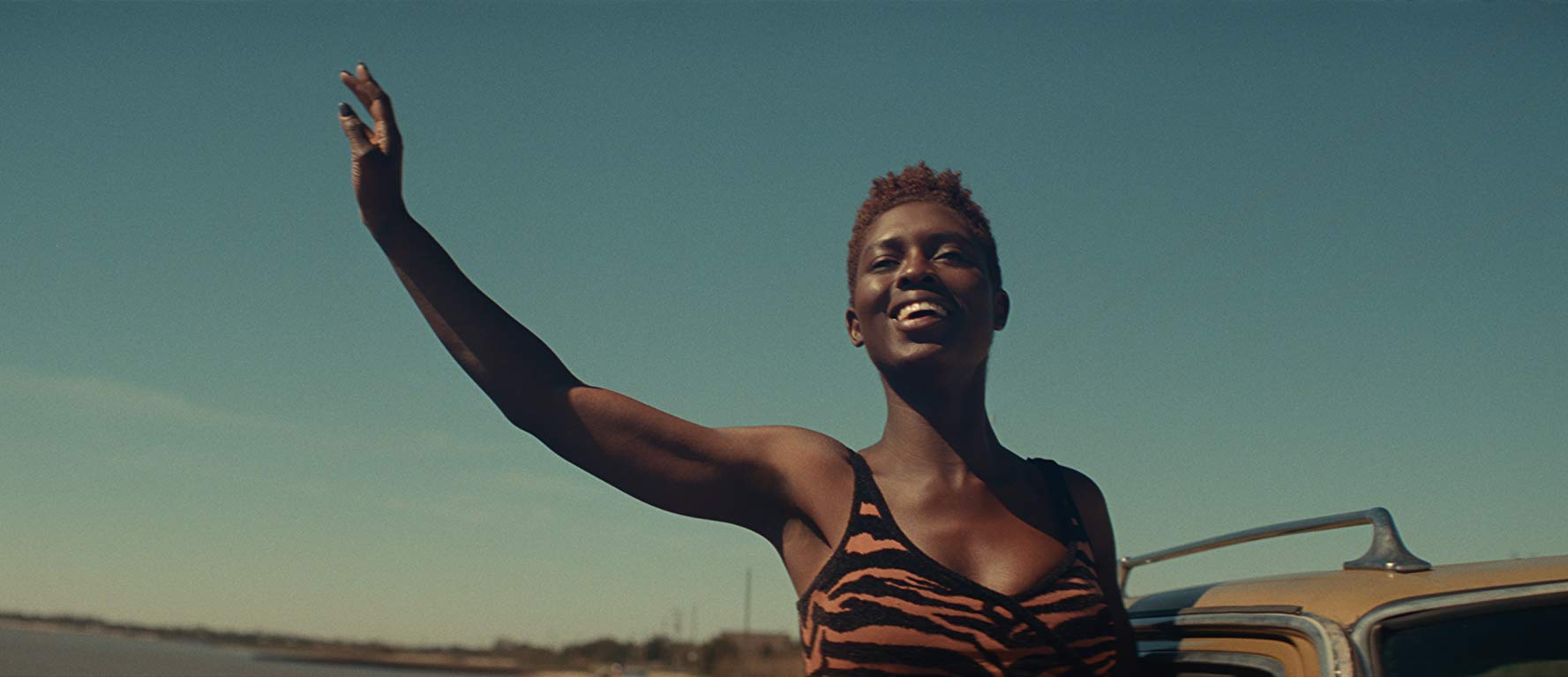
Photo © 2019 Universal Pictures
It begins on a first date in an Ohio diner. The man (Daniel Kaluuya) is all smiles, charismatic and tender. The woman (Jodie Turner-Smith) is stoic, magnetic yet aloof. While the film’s title encourages us to call them Slim and Queen, respectively, the movie doesn’t tell us their names or even call them anything until the end. That matters, I’ll tell you why later, but in those first moments you’re meant to enjoy the banter of two people who’re getting to know each other and don’t really like what they see.
This date isn’t going well.
Our Leading Lady seems to engage with the world from behind a wall. Her words are clipped, her answers are sardonic, and her posture is battle ready. Yet it’s very clear that she cares, she cares so much she’s learned to protect herself from the world, even while she works to change it as a defense attorney.
Our Leading Man is soft and untested (in the best ways). His easy-going manner comes from living in a bubble of love and family. Also from a faith he proudly displays on his vanity license plate: TRUST GOD
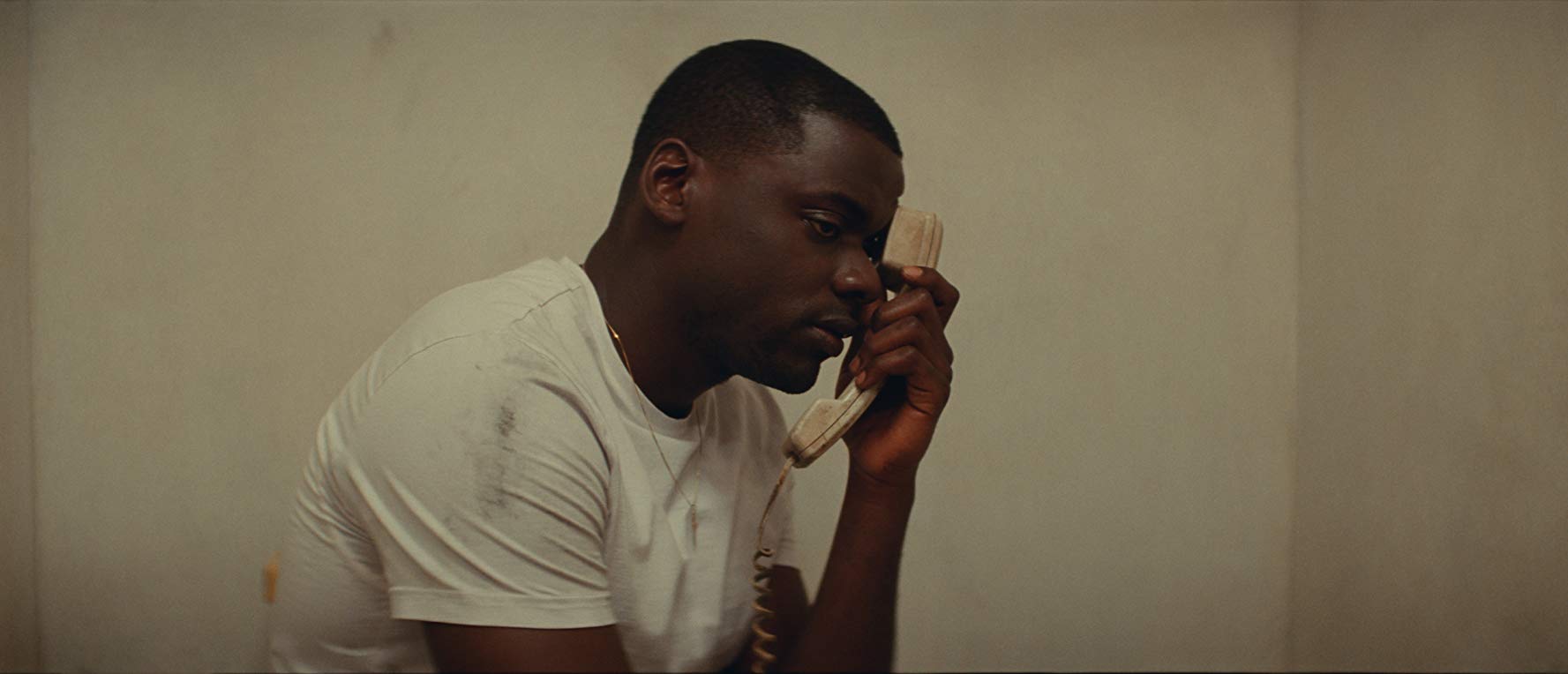
Photo © 2019 Universal Pictures
Did I mention, their date isn’t going well? They probably would’ve chosen to close out the night with him dropping her off and a mutual ghosting afterward. Instead we get the worst possible case of police intervention. The pair get pulled over for swerving. What follows is like watching police brutality videos on social media. You sit there stunned that a traffic stop could be deadly, but you’ve seen it before. You recognize it. Only this time it ends with the killer cop bleeding in the snow and our two not-quite-lovers on the run (with a hefty bounty on their heads).
For me, that’s when they become “Queen” and “Slim”. Those titles aren’t names, they’re aliases. Aliases most likely given to them by the Black American audience, watching them on social media and the news, who either sees them as folk heroes, victims being blamed, or liabilities to the struggle. Either way, two good people are forced to become fugitives known as Queen and Slim. They lose their right to life, liberty, and the pursuit of happiness as quickly as they lose their names.
From there we follow “Queen” and “Slim” on a cross country escape from unjustice. That journey is harrowing, and funny, and revealing, and so painfully and beautifully Black. Lena Waithe is a brilliant writer (although I’m not always sure her powers are used for good). Yet she imbues her lead characters with the kind of weight and complexity that makes them real. And she does this while speaking to police brutality, gun violence, division within the community, and the consequences of internet fame. While avoiding any whiff of preachiness. Instead Waithe gives us the multitudinous facets of Black life in America—the joys and brokenness and the solidarity—and for us she writes a deep dark-skinned, berry sweet love that we so deeply want to last.
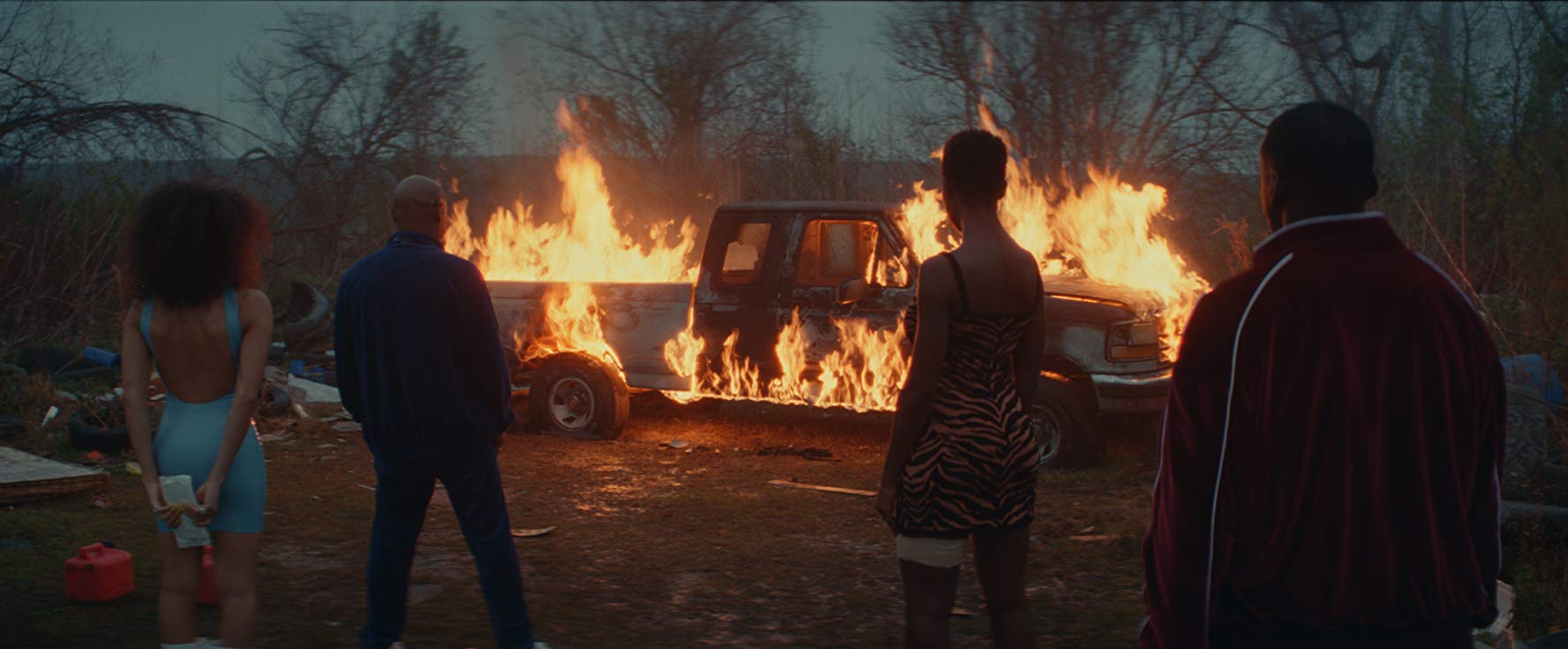
Photo © 2019 Universal Pictures
Waithe chose the perfect “accomplice” in director Melina Matsoukas, who shoots this film with a glowing reverence tempered by moments of cold reality. Matsoukas is known for layering voiceover with quiet scenes that reveal the internal lives of her characters. She does this here to poetic effect. The leads have a spiritual telepathy that communicates more than they’re able to say out loud. It’s such a pretty film. Any shot could be a photograph and every detail builds toward telling the story, even the choice of color palettes for certain scenes or the scenery at the side of the road.
Matsoukas is wondrous.
…so is the cast. Kaluuya gives us a leading man who breaks all the expectations of hyper-masculinity and stomps on them. His tenderness is a strength—in both the character and in his acting.
Turner-Smith, with the help of Waithe, smashes another stereotype. She’s telling society to stuff their “angry-Black-woman” toetag. Her Queen is the flower with thorns. Her anger is righteous; it is an offshoot of her pain and how often she has been silenced or pushed aside. All the while being told who she is is not enough or is too much. This Queen says no—in the process Turner-Smith gives us a stunning portrait of Black womanhood that is imperfect and golden and because of those things: True.
But oh, my friends, Bokeem Woodbine steals this movie. The entire story seems to bloom the moment he comes on screen—like it had been holding its breath and suddenly began to breathe. The flaws, the humor, the pure uncle-ness of his performance—you’re going to love him. Woodbine is aided by Indya Moore who enriches every scene she’s in. Her warmth and titanium infused vulnerability are tangible. Together Woodbine and Moore give us a sublime uncle and auntie at the moment they’re needed most.
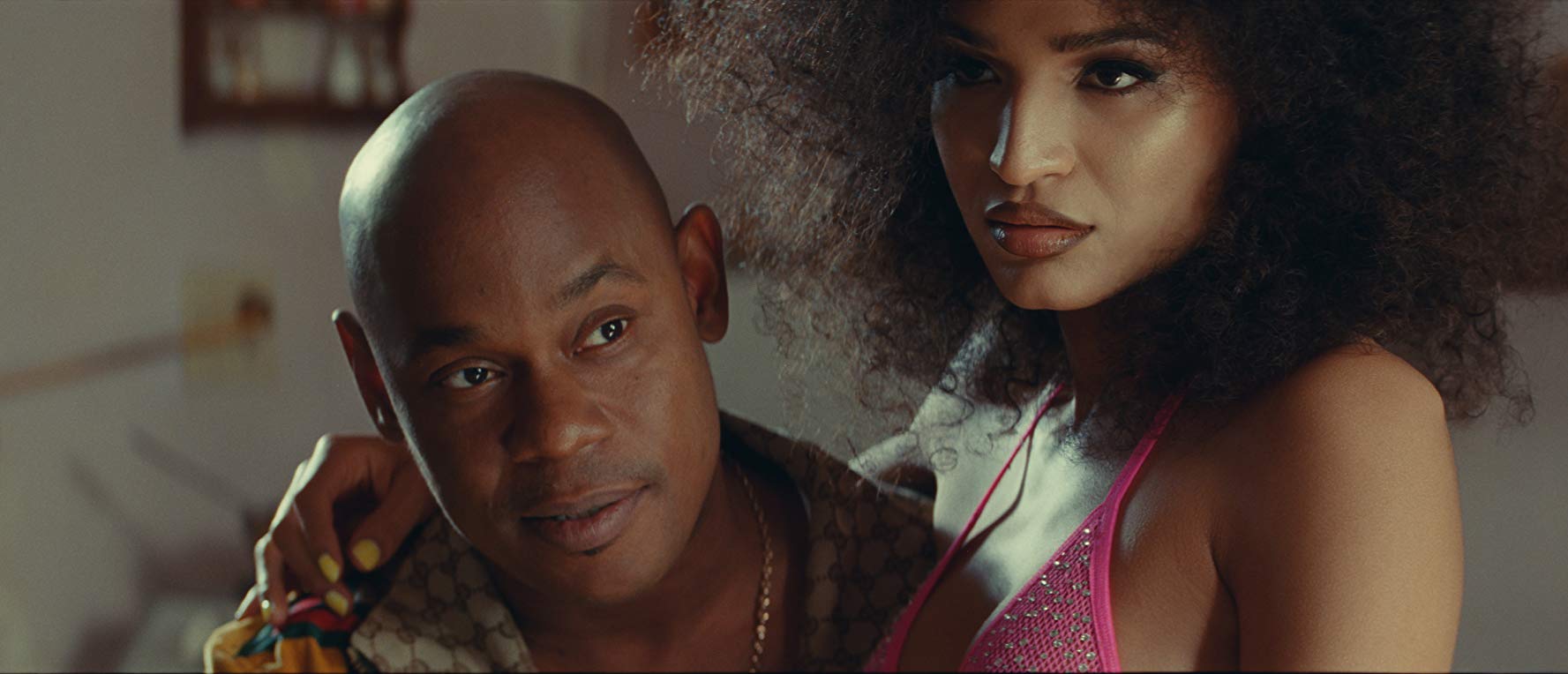
Photo © 2019 Universal Pictures
Our two leads also represent something that’s needed. Not because they meant to be agents of change; because they decide they want to live with respect and dignity. Then they have the guts to stand up, even though they abhor the violence their survival demands. Their self-defence becomes a stance. Which entralls the internet followers who see Queen and Slim as a symbol of change. And, oh my friends, that rebellion often becomes revolutionary. And revolution has consequences.
The only quibble I can offer is that our leads make some truly mystifying decisions. They lock someone in the trunk of a car and don’t tell anyone. Does he live or die…?? There are points when you want to shake them like “really?” Then again, is anyone ever prepared to become an innocent fugitive? Probably not…(still they could’ve looked out for those who looked out for them)…because it’s not likely that any of us would be any good at going on the run. In that light, some of the bumbling of the characters proves what a good writer Waithe is, the mistakes these characters make feel human.
And that’s the point of Queen & Slim, it takes great humanity to be young, gifted, and Black in America but survival takes humanity on all sides…
In the End: See it. Queen & Slim is a love story, a fugitive story, and a rebellion. That’s a lot of bang for your buck.




















